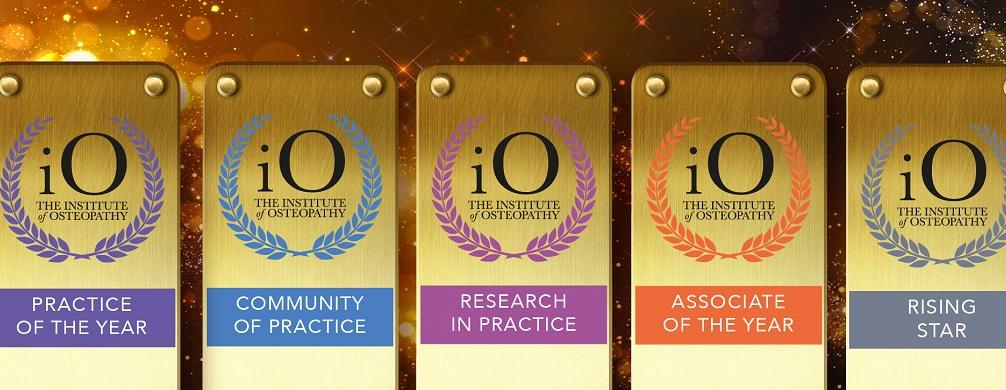The Institute of Osteopathy (iO) annual awards took place on Saturday 2 November. The awards recognise osteopaths, practices and graduates who have shown the highest quality and innovation to delivering first-class patient-centred care and made a significant contribution to osteopathy. We are delighted that members of the UCO family were recognised at this year's awards.
The iO awards have grown year on year, with 2019 seeing the largest numbers of nominations for each category. Judging this year’s awards was a panel that included iO Chief Executive Maurice Cheng, UCO Vice-Chancellor Charles Hunt, Director of the National Council of Osteopathic Research Dawn Carnes and Chair of the Osteopathic Foundation Jonathan Shapiro.
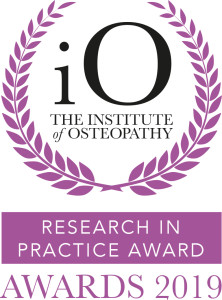
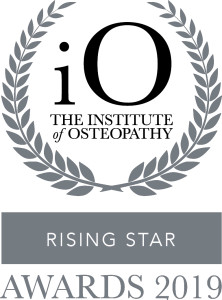 Recent UCO graduate Grant Barnett was awarded a Rising Star award. This award – sponsored by the Sutherland Cranial College of Osteopathy – is presented to a newly qualified osteopath who has demonstrated a passion for osteopathic practice and outstanding academic achievement, clinical skill and patient care, and is selected from the top graduates of the year as nominated by each of the osteopathic educational institutions.
Recent UCO graduate Grant Barnett was awarded a Rising Star award. This award – sponsored by the Sutherland Cranial College of Osteopathy – is presented to a newly qualified osteopath who has demonstrated a passion for osteopathic practice and outstanding academic achievement, clinical skill and patient care, and is selected from the top graduates of the year as nominated by each of the osteopathic educational institutions.
Dr Julie Ellwood, Dr Jerry Draper-Rodi and Dr Dawn Carnes were awarded Research in Practice award. This award – sponsored by the International Journal of Osteopathic Medicine – recognises the use of research to inform the way that they practise osteopathy and provide the best possible treatment for patients. All nominations were invited to give a poster presentation at iO Convention, and the winning research was on the 'Effectiveness of common interventions for the treatment of infantile care'.
When asked about their osteopathic journey and career, here’s what our winners had to say:
Grant Barnett, UCO graduate, said:
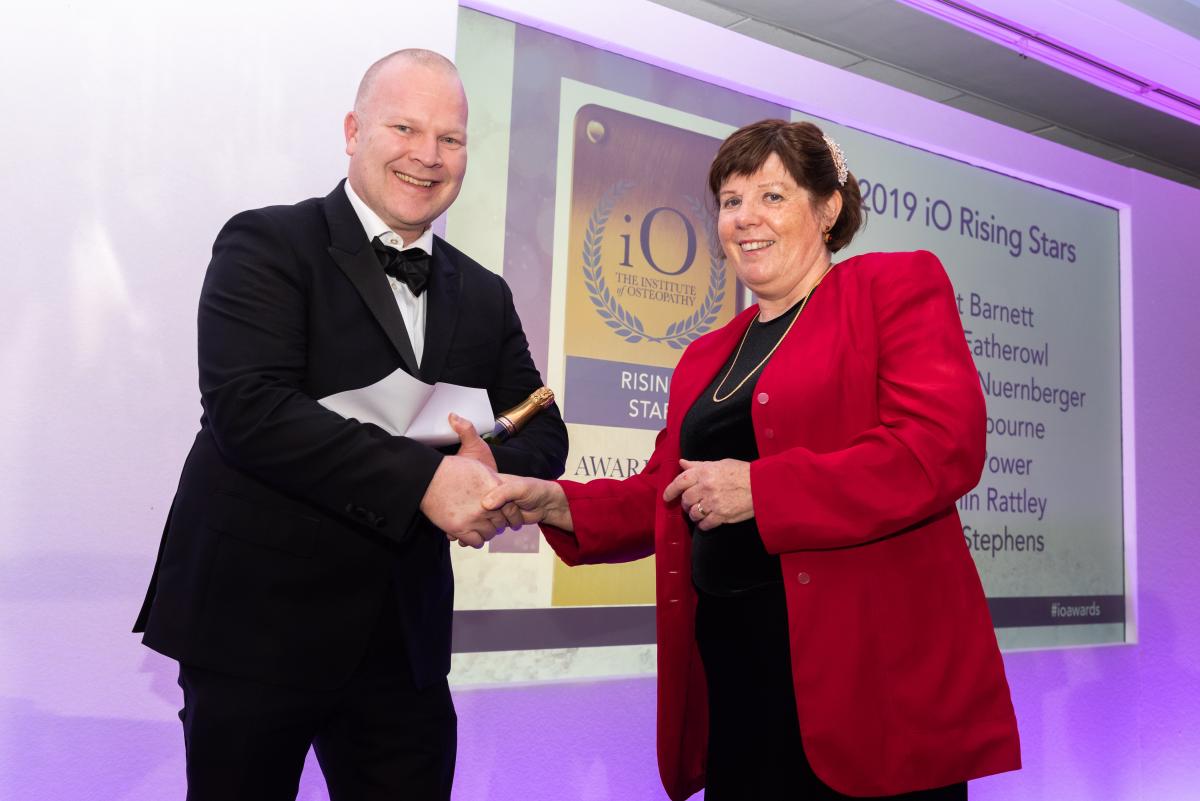 “There are so many people to thank for the recent honour of being nominated by the UCO as one of the iO’s Rising Stars. Qualifying as an osteopath later in life I know I was not alone in juggling multiple tasks, be it family commitments, raising children, full-time work, fitting in a social life and travel across the countryside, to study and turn up to lectures and clinic, week in week out. If you were anything like me, the carrot at the end of 5 years was knowing that I would be working in a field to ‘do what you love, love what you do’.
“There are so many people to thank for the recent honour of being nominated by the UCO as one of the iO’s Rising Stars. Qualifying as an osteopath later in life I know I was not alone in juggling multiple tasks, be it family commitments, raising children, full-time work, fitting in a social life and travel across the countryside, to study and turn up to lectures and clinic, week in week out. If you were anything like me, the carrot at the end of 5 years was knowing that I would be working in a field to ‘do what you love, love what you do’.
“None of this would have been possible without the wonderful support and guidance of the course lecturers, clinic tutors and UCO staff that make the school hum. I am extremely grateful, in particular, to the team 2 & 4 clinic tutors on Monday (PT4), Thursday/Friday (PT5) and specialist clinic tutors who believed in me when I didn’t always believe in myself. I also feel extremely blessed to have learned from and partnered with so many brilliant and talented students during my time at the UCO. It is one of the strengths of the school and has positioned me to be in a great place as I start out my journey as an associate osteopath.
“Winning the award afforded me the opportunity to attend the annual iO convention and awards dinner. It was a fantastic opportunity to network with and learn from fellow osteopaths, as well as the awards evening being something I will remember with fond memories as part of my time at the UCO. It has also provided me with the confidence in staying true to my vision, values and goals where I look forward to being part of the wider osteopath community, contributing to its growth and supporting fellow new osteopaths as they start out.”
Dr Julie Ellwood, Honorary Research Fellow at the UCO, said:
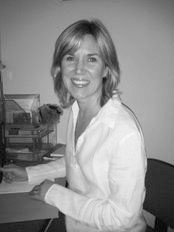 “I entered the profession of osteopathy in 1999 from a background of science, healthcare and research. I thought I knew what I was getting into back then, but I didn’t. My early years as an osteopath were burdened by my scientific background. I loved my work and deeply believed in osteopathy, yet I found it difficult to market myself as a professional based on what I saw as theories and beliefs rather than evidence.
“I entered the profession of osteopathy in 1999 from a background of science, healthcare and research. I thought I knew what I was getting into back then, but I didn’t. My early years as an osteopath were burdened by my scientific background. I loved my work and deeply believed in osteopathy, yet I found it difficult to market myself as a professional based on what I saw as theories and beliefs rather than evidence.
“In an attempt to address my own shortcomings, I embarked on the Professional Doctorate in Osteopathy at the UCO in 2011. Through this I enjoyed great debates and challenging conversations with the likes of the late Professor Stephen Tyreman, and Steven Vogel; I also had the good fortune of having Dr Michael Ford as my supervisor, and I got to share this journey with Jerry Draper-Rodi, Cindy McIntyre and Hilary Abbey - all of whom completed their doctorates with me and are special friends to this day. Completing the doctorate in 2016 changed my views of osteopathy in many ways. My research study highlighted the challenges we face in osteopathic research but equally that there is so much more that we can do as a profession to explain and educate others about ourselves. It is our professional responsibility to share this information, because if we don’t then others do with misinformation.
“I published my doctorate research in the European Journal of Pediatrics and soon after contacted NCOR to volunteer for their systematic review of manual therapies for unsettled babies which was led by Professor Dawn Carnes. This study was published in 2017 in BMJopen and I had made another important research connection and good friend through Dawn. Earlier this year I was delighted when Dawn contacted me about the systematic review for colic, plagiocephaly and torticollis. These were conditions that I worked with on a daily basis in my clinic and having the opportunity to work with both Jerry and Dawn was an added bonus. My wish is to continue my clinical practice in the West of Ireland as this is what I love to do. But by combining this with collaborative research within our profession and with other professions also allows me to give something back.”
Dr Dawn Carnes, Professorial Research Fellow at the UCO, said:
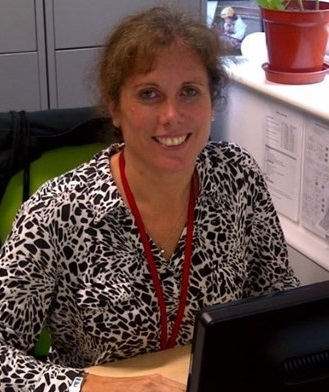 “I trained as an osteopath to realise a long-held ambition to be a healthcare professional to help people and to learn about the human body. After a couple of years in practice consolidating my learning, I started to question some of the underlying beliefs and theories about manual therapy and care. I wanted to learn more about why some things worked for some and not others.
“I trained as an osteopath to realise a long-held ambition to be a healthcare professional to help people and to learn about the human body. After a couple of years in practice consolidating my learning, I started to question some of the underlying beliefs and theories about manual therapy and care. I wanted to learn more about why some things worked for some and not others.
“I started to consider further education and started looking for courses when I saw an advert for a funded PhD position at Queen Mary University of London which I applied for and got. A great place to look for PhD opportunities is jobs.ac.uk. Once the PhD was finished a wealth of research opportunities and projects came my way in the field of musculoskeletal health care enabling me to develop in an academic capacity. This was great as it broadened my viewpoint about care and practice and the wider health environment, and I believe it made me a better osteopath. This wider perspective has fed into my work within the osteopathic profession to think about how the osteopathic profession may grow and thrive in the future health care industry.”
Dr Jerry Draper-Rodi, Senior Research Fellow at the UCO, said:
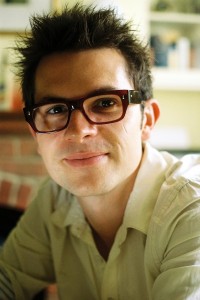 “I had my first encounter with osteopathy 37 years ago when my parents took me to see an osteopath in France for plagiocephaly on the paediatrician’s recommendation. I suspect this was not standard advice at the time, and I didn’t consult one again for many years, then began my studies in France. I graduated in 2007 still wanting to learn more (I think I’m an eternal student). I completed two postgraduate certificates in anatomy as I felt this would provide more answers (and at the time I thought it did!).
“I had my first encounter with osteopathy 37 years ago when my parents took me to see an osteopath in France for plagiocephaly on the paediatrician’s recommendation. I suspect this was not standard advice at the time, and I didn’t consult one again for many years, then began my studies in France. I graduated in 2007 still wanting to learn more (I think I’m an eternal student). I completed two postgraduate certificates in anatomy as I felt this would provide more answers (and at the time I thought it did!).
“I joined the UCO faculty in 2010 when I moved to the UK. I found the teaching and clinical work great but felt I needed another challenge so I started looking for a PhD. I naïvely thought I could apply anywhere, and funding would be no trouble – maybe due to my experience with the French university system – and came across the advert for the Professional Doctorate at the UCO. I barely met the recruitment criteria but decided to give it my best shot and managed to get onto the course with partial funding from the UCO. This was an eye-opener – initially quite painful, for example when I discovered that most of the knowledge I gained at undergraduate level completely lacked evidence, and that anatomy was actually a poor model to use as a basis for clinical reasoning; but at the same time it was thrilling. This was the challenge I had been seeking.
“The Prof Doc allowed me to develop my critical thinking, taught me about the different research methods that are useful in osteopathy and gave me experience in most of them during my research project. I met three fantastic peers who became friends with whom I shared a lot of laughter and some tears. I was lucky to have two supportive and smart supervisors, Steven Vogel from UCO and Dr Annette Bishop from Keele University. Since completing my Prof Doc, I have joined the research team at UCO where I lecture in research methods, supervise students’ Masters dissertations and am lucky enough to take part in some research projects. The one we won the award for was completely serendipitous following a phone conversation with Julie. I embarked on a voyage that would entail four manic months of hundreds of emails, excel spreadsheet and word document exchanges, and we were finally able to produce two reports for our funders, a poster for the iO convention, and have now submitted the manuscripts for review. I haven't planned my career but so far, it's been a fantastic journey.”
Maurice Cheng, CEO of the iO, said:
“Osteopaths play a crucial role in keeping people healthy. As the professional body for the profession, we want to celebrate those that show the highest standards and demonstrate innovation in the services they provide to those living and working in their local area. The standard this year was exceptional, with nominations not only from fellow osteopaths but from members of the public too. It is always a pleasure to see the fantastic, positive impact osteopaths have on the health of the nation.”

